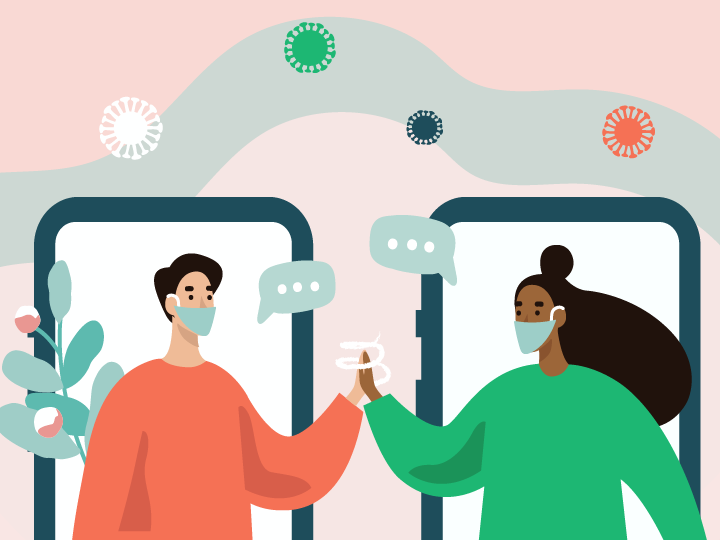The Effects of COVID-19 on Social Life
Although social distancing practices such as wearing masks and staying home are meant to keep us safe, they place limits on people’s opportunities to interact with others as they would normally do in their daily lives.

By: Dr. Susan Boon, PhD, Psychology Professor, University of Calgary
As of July 10th, 2020, more than 12 million people worldwide have been infected with COVID-19. Borders have been closed, schools and workplaces have shut down (at least for a time), and people all over the globe have been encouraged to engage in social distancing practices.
Although social distancing practices such as wearing masks and staying home are meant to keep us safe, they place limits on people’s opportunities to interact with others as they would normally do in their daily lives. As a result, they may pose a significant challenge to people’s ability to interact with others, maintain their social ties, and feel connected to others. This may be part of the reason that technology and social innovations that enable us to keep in touch—from Instagram to Zoom—have boomed in the last few months.
Humans are social animals
Humans are profoundly social beings. From the cradle to the grave, each of us is part of a larger social network of social connections that involves an array of other people. Some of those social ties are close, as is typically the case in in our connections with family, friends, romantic partners, and sometimes coworkers. Some are more peripheral in nature, such as the connections we have with our physician, hairdresser, and the barista at our favourite coffee shop.
Relationships with members of our social networks influence our lives in many ways, not the least of which is through providing companionship and support. Situations that weaken, disrupt, damage or cause the loss of our social ties can lead to considerable stress, loneliness, and distress because connections with those in our social networks help meet our needs for belonging, security, and intimacy.
How research is addressing the effect of COVID-19 on social relationships
The global COVID pandemic poses significant challenges to people’s ability to connect with their social networks. Psychologists at the University of Calgary, Université de Montréal, and Université de Sherbrooke are conducting a study designed to explore the nature of those challenges. In this study, we’ve joined with researchers from 27 other countries to seek answers to important questions about how social distancing, self-isolation, and concerns related to the pandemic (e.g., about becoming infected with COVID) affect people’s social relationships.
We hope that the knowledge we gain from this research will provide valuable insights that counsellors, mental health practitioners, and physicians can use to assist those coping with the stresses associated with COVID-19 and similar infectious diseases.
*This study is currently closed, thank you for participating!

